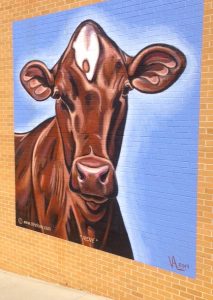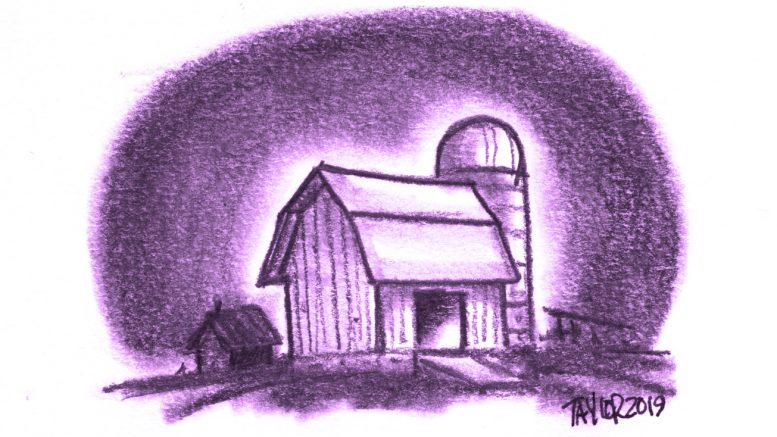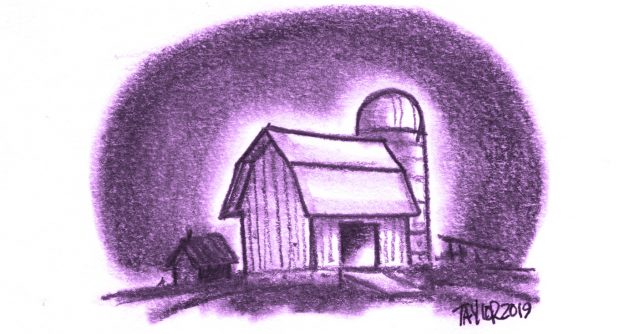The consolidation of dairy and the continual shrinking of profit margins have led to drastic changes to the industry over the years.
By
This Christmas, like every other, I traveled to northern Wisconsin to stay with my parents on the dairy farm I grew up on.
As usual I took the opportunity to help my dad and younger brother with barn chores and milk cows. The cows need to be milked twice a day, every day, roughly around 4AM and 4PM. I didn’t help out every shift but I worked more than enough to once again be humbled about the life I left behind and recalibrate my nostalgia.
In rural Wisconsin, our natural water supply is beginning to be destroyed through a combination of manure and fertilizer spills contaminating our well water, and high capacity wells sucking out so much water that it’s disrupting the water table.
Speaking of which, I never had the work ethic to be a farmer. Ever since I was little and playing video games on our NES, I was enamored by electronics. By the time our family got a personal computer and dial-up internet for Christmas in 1997,1 when I was 11, I was completely and hopelessly sucked in. There followed many evenings where my dad would come flying in to the house to yell at me for being late for chores when I lost track of time on “that damn computer.”2 😅
Thankfully for all involved, my younger brother Noah inherited my dad’s insane work ethic and love of farming and took up the farm’s reins (he also picked up my slack when we were younger – thanks Brother). He loves the work and excels at it.
I instead went to college and became a computer programmer, and haven’t lived in my hometown since.
I also have two older brothers; neither of them got the farming gene either. My eldest brother Jerry3 lives near Madison and also works in the software field. My second-eldest brother John lives near my folks and helps out quite often, but he also does other work and has other obligations, so most of the daily farming work falls on my youngest brother Noah and my dad, who is now into his seventies.
Sadly this year I found out that it will have been my final Christmas coming home and milking cows, because they’ll be selling off the cows over the coming spring and fall.
The end of a long battle
This probably shouldn’t be a huge shock. Ever since I can remember there has always been a steady drumbeat of family farms going bust. Sometimes the tempo would increase, when milk and/or crop prices would hit new lows, but the drum has always beat on as the industry never seemed to turn a corner.
Our family farm was subjected to the same ups and downs as every other farm but had always managed to weather every storm. I recall my dad saying how farming was a series of upturns and downturns in pretty much everything, and how it was important to save money from the good years so you can survive the bad years.
One of the bad times I can remember was in the mid-to-late 90s – I was in elementary school – when milk prices were so low that some farmers were dumping their milk down the drain in protest. At that time, my mom got involved in dairy activism and became a lead organizer of a group of area farmers who worked together to try to improve their lot and raise public awareness of their struggles. …
Read the Rest and Good Dairy Graphics
(Commoner Call art by Mark L. Taylor 2019. Open source and free for non-derivative use with link to www.thecommonercallorg )
*****
State Dairy Farmers Are In Crisis — And It Could Dramatically Change Wisconsin Forever
Farmers cling to a dream that, for some, has become a nightmare.
By Rick Barrett
Milwaukee Journal Sentinel (3/1/19)
here was a time when the soft glow of barn lights dotted Wisconsin’s rural landscape like stars in a constellation, connecting families who labored into the night milking cows, feeding calves and finishing chores.
Hundreds of those barns are dark now, the cows gone, the hum of milking machines silenced.
“All of our neighbors are done,” said Sue Spaulding, a dairy farmer near Shell Lake, in Washburn County.
She and her husband, Chuck, soldier on, milking about 60 cows on their 300-acre farm that Chuck bought when he was only 17.
Seven years ago, the Spauldings borrowed heavily to modernize their barn and position things for the future.
“It looked good on paper,” Sue said.

“It’s been such a struggle just to keep things going. We have managed, but now it is getting hard to pay even our basic everyday bills. I don’t know how much longer we can do this.”
But in late 2014, farm milk prices started to plummet. The downturn, fueled by overproduction and failing export markets, has lasted more than four years and has wiped out dairy farms from Maine to California.
The price farmers receive for their milk has fallen nearly 40 percent.
“This downward cycle has been brutal,” said Kevin Schoessow, a University of Wisconsin-Extension agent in Washburn County.
Unprecedented loss
Wisconsin lost almost 700 dairy farms in 2018, an unprecedented rate of nearly two a day. Most were small operations unable to survive farm milk prices that, adjusted for inflation, were among the lowest in a half-century.
As of Feb. 1, Wisconsin had 8,046 dairy herds, down 40 percent from 10 years earlier, according to state Department of Agriculture data.
Remaining dairy farmers have burned through their farm equity and credit to remain in business. Often, at least one family member works an off-farm job to put groceries on the table or pay for health insurance. Some work double shifts, farming during the day then heading to a local factory for the night. It’s exhausting, but it keeps families in agriculture and preserves a cherished way of life.
Much of Wisconsin’s $88 billion farm economy hangs in the balance. …
(Commoner Call photo by Mark L. Taylor, 2018. Open source and free for non-derivative use with link to www.thecommonercall.org )



